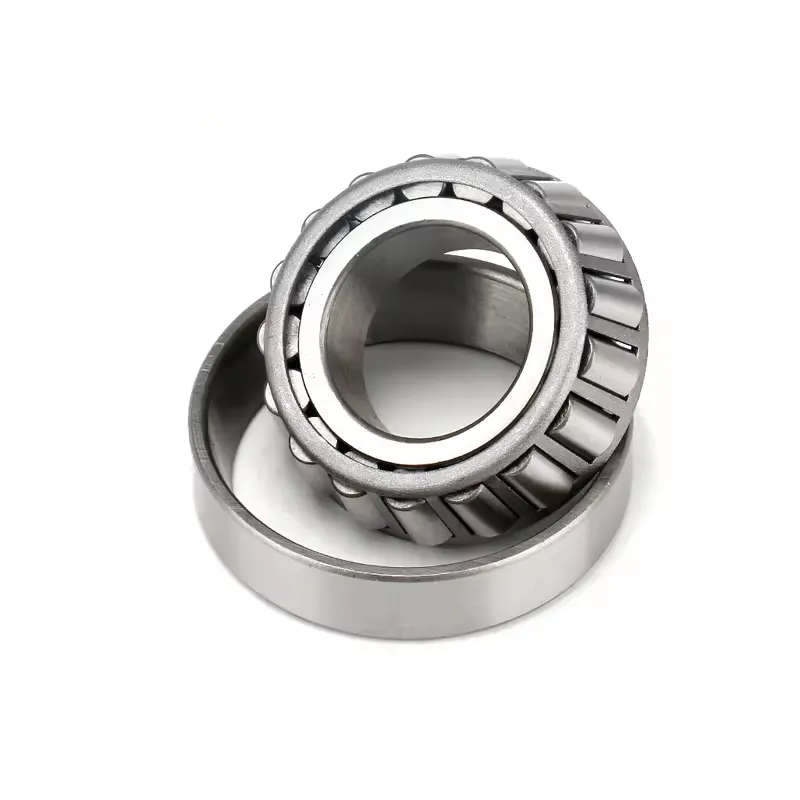Oct . 16, 2024 15:43 Back to list
industrial ceramic bearings
The Advancements and Benefits of Industrial Ceramic Bearings
In recent years, the use of industrial ceramic bearings has gained significant traction across various industries due to their numerous advantages over traditional steel bearings. As industries strive for enhanced performance and increased efficiency, ceramic bearings have emerged as a viable solution to meet these demands.
Understanding Ceramic Bearings
Ceramic bearings are made from advanced ceramic materials, primarily silicon nitride and zirconia, which are known for their superior mechanical properties. Unlike conventional metal bearings, ceramic bearings are non-metallic, offering several intrinsic benefits. Their unique composition allows them to operate in extreme temperatures, resist corrosion, and withstand heavy loads, making them ideal for a wide range of industrial applications.
Key Advantages
1. High Wear Resistance Ceramic materials exhibit exceptional wear resistance compared to traditional steel bearings. This property significantly extends their lifespan, reducing the frequency of maintenance and replacement. This advantage comes into play particularly in applications involving high-speed machinery or environments with abrasive particles.
2. Corrosion Resistance One of the most significant drawbacks of steel bearings is their susceptibility to rust and corrosion, especially in humid or chemically aggressive environments. Ceramic bearings, on the other hand, are highly resistant to corrosion, making them suitable for industries like food processing, pharmaceuticals, and chemical manufacturing. Their ability to endure harsh conditions translates to increased reliability and reduced downtime.
industrial ceramic bearings

3. Lightweight Ceramic bearings are substantially lighter than their steel counterparts. This characteristic leads to lower energy consumption in operation and allows for faster response times in dynamic applications. As industries adopt lightweight designs for machinery and equipment, ceramic bearings provide a strategic advantage in performance and energy efficiency.
4. Thermal Stability Operating temperature ranges are critical in many industrial applications. Ceramic bearings can function effectively at much higher temperatures compared to standard steel bearings, often exceeding 1000°C (1832°F). This thermal stability makes them an excellent choice for applications such as aerospace, turbines, and automotive engines, where high heat generation is commonplace.
5. Reduced Friction The low friction coefficient of ceramic bearings contributes to smoother operation, enhancing the overall performance of machinery. Reduced friction not only improves efficiency but also minimizes energy loss and heat generation, making them an eco-friendlier choice in terms of energy consumption.
Applications Across Industries
The versatility of industrial ceramic bearings allows them to find applications across various sectors. From the automotive industry, where they are used in high-performance engines, to the medical field, where precision is crucial, the benefits of ceramic bearings are evident. Aerospace, robotics, and even renewable energy systems like wind turbines are increasingly incorporating ceramic bearings to leverage their unique properties.
Conclusion
As industries continue to evolve towards more efficient and durable solutions, the role of industrial ceramic bearings becomes increasingly prominent. Their remarkable properties, such as wear resistance, corrosion resistance, lightweight design, thermal stability, and reduced friction make them an ideal choice for modern applications. Investing in ceramic bearings not only enhances operational efficiency but also contributes to a more sustainable industrial future.
Latest news
-
39602/F33 Square Bore Disc Harrow Bearing - Heavy-Duty Ag Bearings
NewsAug.30,2025
-
UCFC212-38 Round Flange Housing 4 Bolt Ball Bearing - Durable & Precision
NewsAug.29,2025
-
GW315PPB11 Ball Round Hole Agricultural Bearings - Durable & Reliable.
NewsAug.28,2025
-
Top Spherical Roller Bearing Material Exporter - High-Performance Alloys
NewsAug.27,2025
-
Durable PLC 110-190 Spherical Roller Bearing for Mixer Reducer
NewsAug.26,2025
-
CSK-2RS Sprag Clutch One Way Bearing: Sealed, High Torque, Durable
NewsAug.25,2025